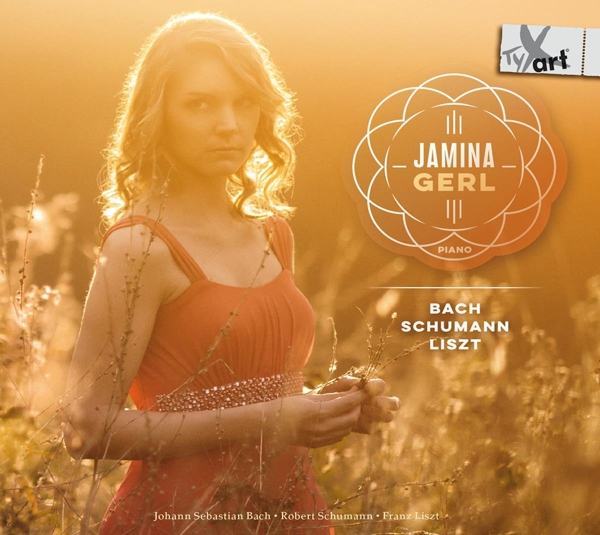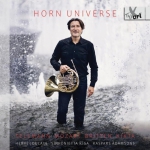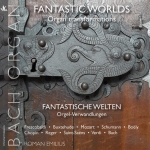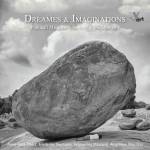| 详情/曲目清单: |
Pr?ludium für Orgel BWV 543 in a-Moll 01. "Pr?ludium für Orgel BWV 543 in a-Moll" 01. "Pr?ludium für Orgel BWV 543 in a-Moll"
Fuge für Orgel BWV 543 in a-Moll (Fassung für Klavier von Franz Liszt) 02. "Fuge für Orgel BWV 543 in a-Moll (Fassung für Klavier von Franz Liszt)" 02. "Fuge für Orgel BWV 543 in a-Moll (Fassung für Klavier von Franz Liszt)"
Pilgerjahre - Italien 03. "Petrarca-Sonett 47: "Benedetto sia 'l giorno" (Gepriesen sei der Tag)" 03. "Petrarca-Sonett 47: "Benedetto sia 'l giorno" (Gepriesen sei der Tag)" 04. "Petrarca-Sonett 104: "Pace non trovo" (Ich finde keinen Frieden)" 04. "Petrarca-Sonett 104: "Pace non trovo" (Ich finde keinen Frieden)" 05. "Petrarca-Sonett 123: "Io vidi in terra angelici costumi" (Ich sah auf Erden engelsgleichen Glanz)" 05. "Petrarca-Sonett 123: "Io vidi in terra angelici costumi" (Ich sah auf Erden engelsgleichen Glanz)"
Sonate op. 11 in fis-Moll 06. "Un poco Adagio - Allegro vivace" 06. "Un poco Adagio - Allegro vivace" 07. "Senza passione, ma espressivo" 07. "Senza passione, ma espressivo" 08. "Scherzo e Intermezzo" 08. "Scherzo e Intermezzo" 09. "Allegro und poco maestoso" 09. "Allegro und poco maestoso"
Pilgerjahre - Italien 10. "Nach einer Lesung von Dante: Fantasia quasi Sonata" 10. "Nach einer Lesung von Dante: Fantasia quasi Sonata"
|
 |
| 光盘数量: |
1 |
 |
| 描述: | It was "the great meanings of the ancients" that drove Goethe to Italy and Mendelssohn to Scotland. Literati and musicians are united by a preoccupation with the past, searching for themselves in the foreign and distant. This is more than mere intellectual curiosity; to receive fresh stimuli for one's own work from the ancients is like an act of self-assurance through questioning those masters who form the canon of knowledge and to whom new voices must be gallantly added. By showing personal reverence through artistic references, artists have always created new forms of expression in the footsteps of the past. Bringing such interactions to light is the goal of this album. The collected works show examples of how pioneering this attitude is. It was Mendelssohn who was the impetus for the Bach renaissance in the mid-nineteenth century. It directly affected Clara and Robert Schumann as well as Franz Liszt, whose piano transcriptions of Bach's organ works open the recording. Like many composers, Liszt was drawn to Italy, whose cultural heritage, including Renaissance paintings and poems by Dante Alighieri and Francesco Petrarch, captivated him. Petrarch in particular appealed to Liszt and Schumann. The latter read his poems and translated them; Liszt set them to music. Dante's "Divine Comedy" was also omnipresent. Liszt's resounding Dante reading concludes the series of selected works that push us back, as it were, into the future., Runningtime: 00:00:00, Labelcode TYX19135.2 |
 |
| Manufacturer No.: |
TXA19135 |
 |
产品安全
欧盟负责人:
TYXart
TYXart
Ringofenstr. 11, 93152 Nittendorf, DE
web@tyxart.de |
 |






















